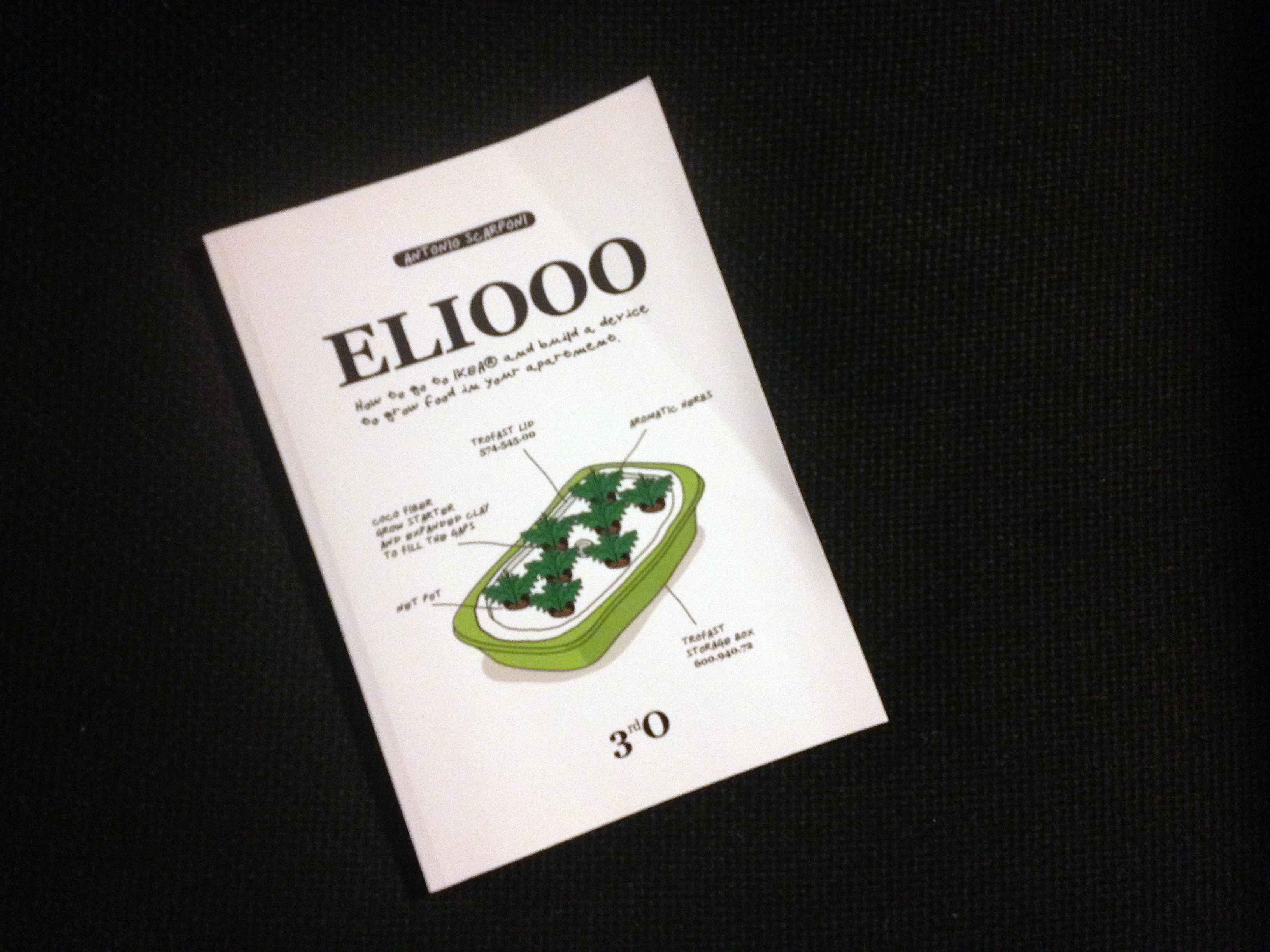Last year, the lady gave me a book for my birthday. At first, I didn't know what to think; it was a small, unassuming paperback with an indecipherable title -- ELIOOO -- written by an author I didn't recognize, Antonio Scarponi. But, as I flipped through the pages, it was clear to me that she had found something that knit together a number of design obsessions I had investigated since childhood, wrapped up in a package straight out of the new maker economy.
In fifth grade, I found the Kid's Whole Future Catalog in the school library and was forever warped by its vision of an integrated green future, where we all lived in arcologies and commuted in velocars. In 7th grade, for Mrs. Mason's geography class, we had to make a 3-foot square diorama of a working farm. Instead of patiently pasting toothpicks to replicate a hundred acres of petrochemically-fed corn, I made a survival pit greenhouse modeled after another library book. James Dekorne's prototype was a solar-heated, self-contained ecosystem that used compost tea to grow plants hydroponically. Rabbits in cages underneath the planters pumped the space full of CO2, which sped photosynthesis. A huge tilapia tank bred fish for eating and worked as thermal mass to store heat after the sun went down. The rabbit crap fed the compost heap, the fish water fed the hydroponic system, and on it went into a meta-hippie version of the Grand Unified Theory.
Read More
